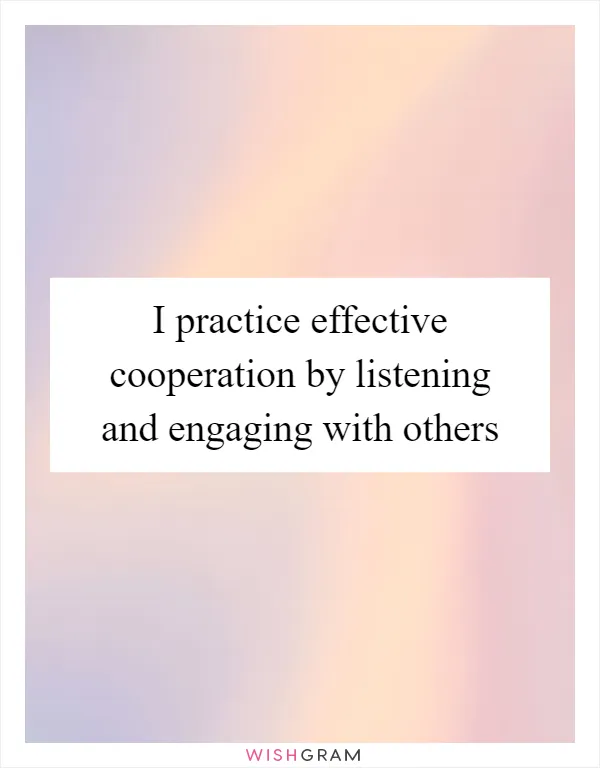I practice effective cooperation by listening and engaging with others
Effective cooperation is an essential skill that can help you achieve your goals and build strong relationships with others. It involves listening to others and engaging with them in a way that promotes mutual understanding and respect. By practicing effective cooperation, you can improve your communication skills, build trust, and create a positive work environment.
The affirmation "I practice effective cooperation by listening and engaging with others" can help you develop this important skill. It reminds you to be mindful of your interactions with others and to approach them with an open mind and a willingness to learn.
Listening is a critical component of effective cooperation. When you listen to others, you show them that you value their opinions and perspectives. You also gain valuable insights that can help you make better decisions and solve problems more effectively. To be an effective listener, you need to be present in the moment and focus on what the other person is saying. Avoid interrupting or jumping to conclusions, and ask clarifying questions to ensure that you understand their point of view.
Engaging with others is another important aspect of effective cooperation. This involves actively participating in conversations and collaborating with others to achieve common goals. When you engage with others, you show them that you are committed to working together and that you value their contributions. To be an effective engager, you need to be proactive and take initiative. Look for opportunities to share your ideas and expertise, and be willing to compromise and find common ground.
Practicing effective cooperation can have many benefits. It can help you build stronger relationships with your colleagues, improve your communication skills, and enhance your problem-solving abilities. It can also create a more positive work environment, where everyone feels valued and respected.
To practice effective cooperation, you need to be willing to put in the effort. This means being open to feedback, learning from your mistakes, and continuously improving your skills. It also means being patient and understanding, and recognizing that everyone has their own unique perspectives and experiences.
